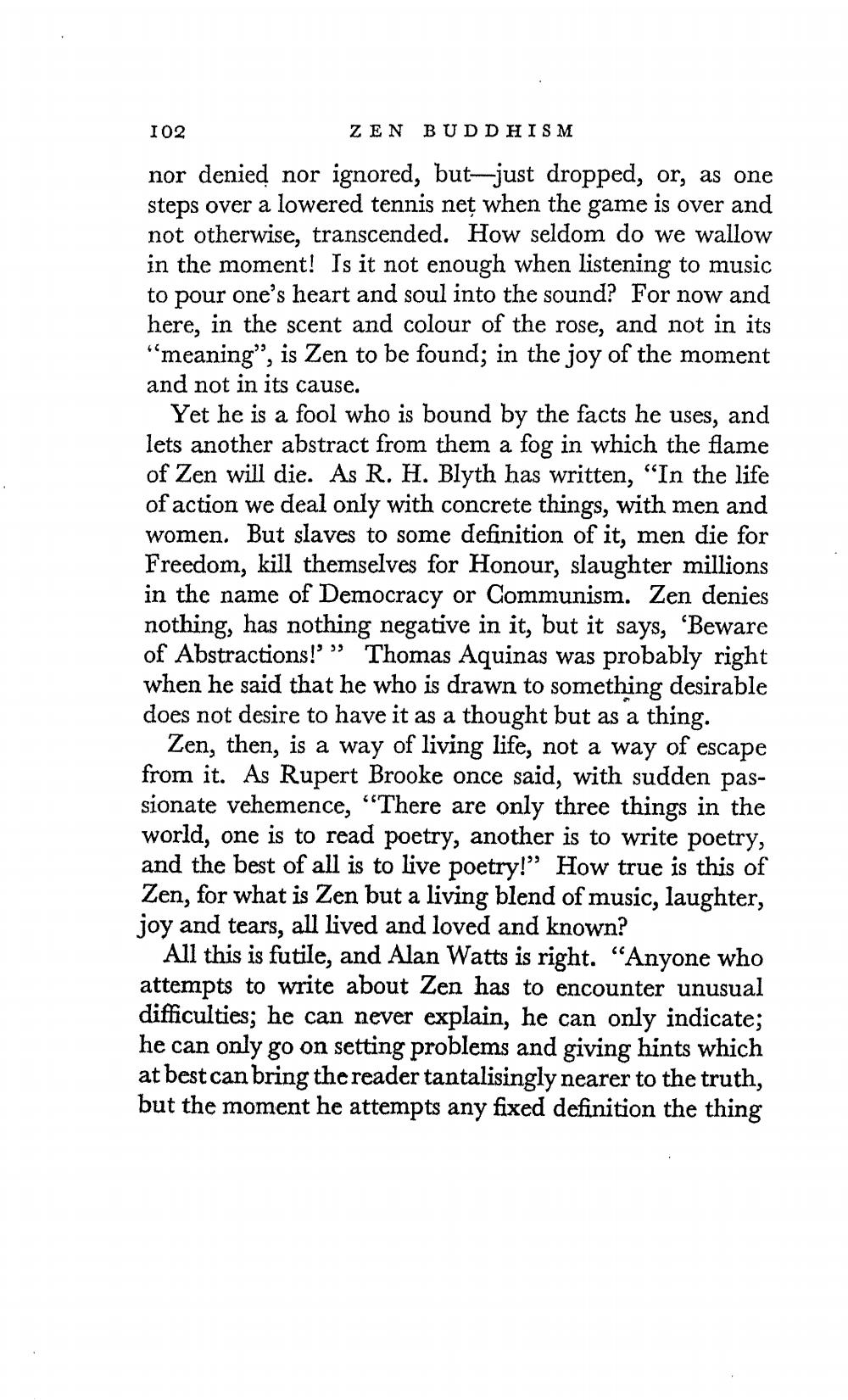________________
102
ZEN BUDDHISM
nor denied nor ignored, but-just dropped, or, as one steps over a lowered tennis net when the game is over and not otherwise, transcended. How seldom do we wallow in the moment! Is it not enough when listening to music to pour one's heart and soul into the sound? For now and here, in the scent and colour of the rose, and not in its "meaning", is Zen to be found; in the joy of the moment and not in its cause.
Yet he is a fool who is bound by the facts he uses, and lets another abstract from them a fog in which the flame of Zen will die. As R. H. Blyth has written, "In the life of action we deal only with concrete things, with men and women. But slaves to some definition of it, men die for Freedom, kill themselves for Honour, slaughter millions in the name of Democracy or Communism. Zen denies nothing, has nothing negative in it, but it says, 'Beware of Abstractions!' " Thomas Aquinas was probably right when he said that he who is drawn to something desirable does not desire to have it as a thought but as a thing.
Zen, then, is a way of living life, not a way of escape from it. As Rupert Brooke once said, with sudden passionate vehemence, "There are only three things in the world, one is to read poetry, another is to write poetry, and the best of all is to live poetry!” How true is this of Zen, for what is Zen but a living blend of music, laughter, joy and tears, all lived and loved and known?
All this is futile, and Alan Watts is right. “Anyone who attempts to write about Zen has to encounter unusual difficulties; he can never explain, he can only indicate; he can only go on setting problems and giving hints which at best can bring the reader tantalisingly nearer to the truth, but the moment he attempts any fixed definition the thing




